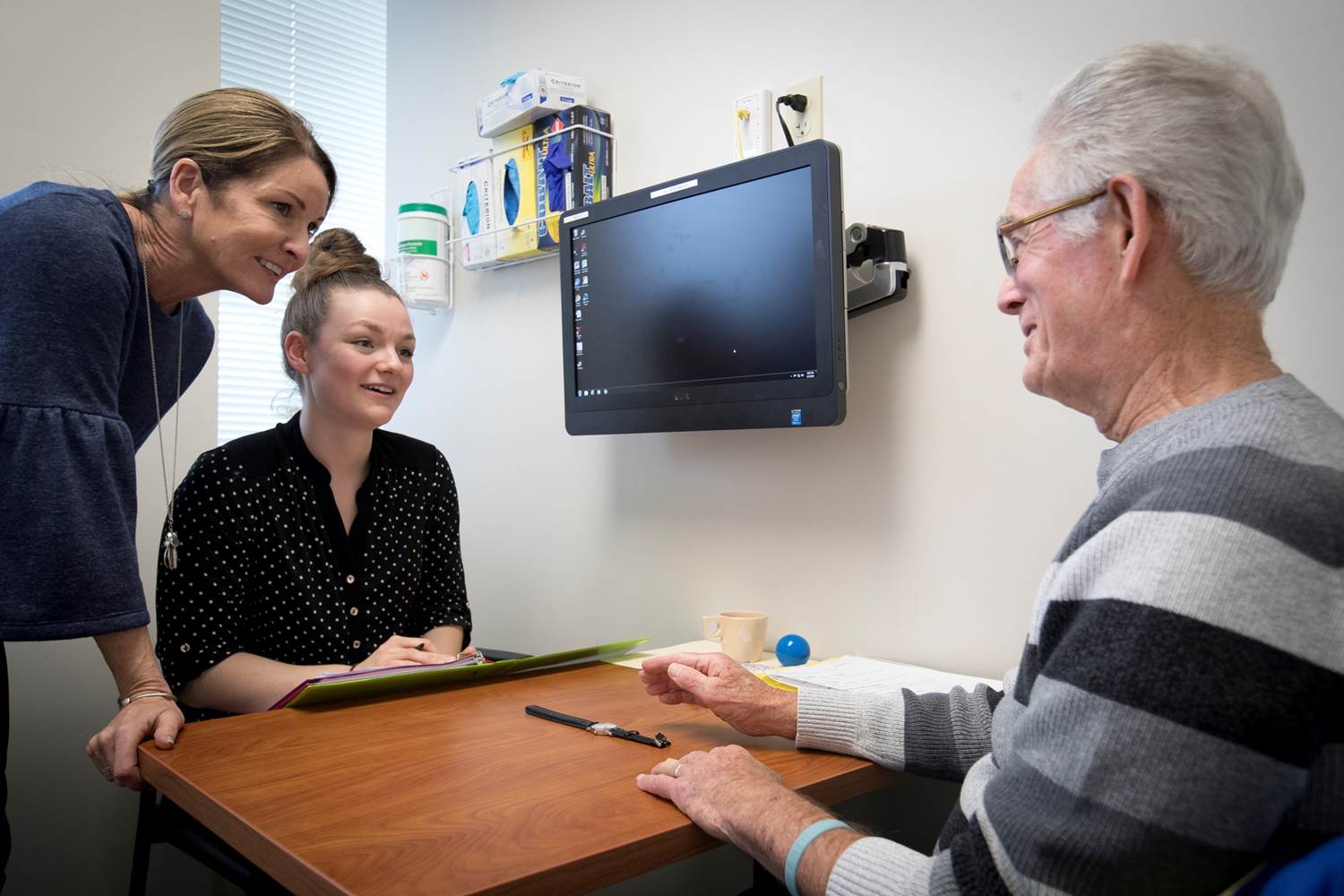Communication Problems with Alzheimer’s Disease
Alzheimer’s disease is named after Alois Alzheimer, a doctor who noticed abnormal changes in the brain tissue of a deceased patient in 1906. It is a form of dementia, which refers to cognitive impairments that affect daily life.
 The disease is progressive and generally presents in older populations. It slowly deteriorates mental functions, impacting memory and cognitive skills. When caught in its early stages, the chances of slowing down the disease increase. Many of the symptoms can be managed.
The disease is progressive and generally presents in older populations. It slowly deteriorates mental functions, impacting memory and cognitive skills. When caught in its early stages, the chances of slowing down the disease increase. Many of the symptoms can be managed.
Communication is hard for people with Alzheimer’s disease because they have trouble remembering things. They may struggle to find words or forget what they want to say. A person with Alzheimer’s may have problems with:
- Finding the right word or losing their train of thought when speaking
- Understanding what words mean
- Paying attention during long conversations
- Remembering the steps in common activities, such as cooking a meal, paying bills, or getting dressed
- Frustration if communication isn’t working
Alzheimer’s disease may also cause some people to get confused about language. The person might forget or no longer understand English if it was learned as a second language. Instead, he or she might understand and use only the first language learned, such as Spanish.
Communication in the Early Stage
In the early stage of Alzheimer’s disease, sometimes referred to as mild Alzheimer’s, an individual can still participate in meaningful conversation and engage in social activities. However, they may repeat stories, feel overwhelmed by excessive stimulation or have difficulty finding the right word. Tips for successful communication:
- Don’t make assumptions about a person’s ability to communicate because of an Alzheimer’s diagnosis. The disease affects each person differently.
- Don’t exclude the person from conversations.
- Speak directly to the person rather than to their caregiver or companion.
- Take time to listen to the person express his or her thoughts, feelings and needs.
- Give them time to respond. Don’t interrupt unless help is requested.
- It’s OK to laugh. Sometimes humor lightens the mood and makes communication easier.
 Communication in the Middle Stage
Communication in the Middle Stage
The middle stage of Alzheimer’s, sometimes referred to as moderate Alzheimer’s, is typically the longest and can last for many years. As the disease progresses, the person will have greater difficulty communicating and will require more direct care. Communication tips include:
- Engage in one-on-one conversation in a quiet space that has minimal distractions.
- Speak slowly and clearly.
- Maintain eye contact. It shows you care about what they are saying.
- Give the person plenty of time to respond so they can think about what to say.
- Be patient and offer reassurance. It may encourage the person to explain their thoughts.
- Ask one question at a time.
- Ask yes or no questions. For example, “Would you like some coffee?” rather than “What would you like to drink?”
- Offer clear, step-by-step instructions for tasks. Lengthy requests may be overwhelming.
- Give visual cues. Demonstrate a task to encourage participation.
Communication in the Late Stage
The late stage of Alzheimer’s disease, sometimes referred to as severe Alzheimer’s, may last from several weeks to several years. As the disease advances, the person with Alzheimer’s may rely on nonverbal communication, such as facial expressions or vocal sounds. Around-the-clock care is usually required in this stage.
Here are some tips for successful communication:
- Approach the person from the front and identify yourself.
- Encourage nonverbal communication. If you don’t understand what they are trying to say, ask them to point or gesture.
- Use touch, sights, sounds, smells and tastes as a form of communication with the person.
- Consider the feelings behind words or sounds. Sometimes the emotions being expressed are more important than what’s being said.
- Treat the person with dignity and respect.
- It’s OK if you don’t know what to say; your presence and friendship are most important.
 Speech-Language Therapy
Speech-Language Therapy
Speech-language therapy provides Alzheimer’s patients with the tools necessary to improve language functioning as much as possible. To do this, speech-language pathologist’s form individualized treatment plans that focus on memory and language. These plans take into account your loved one’s current cognitive status.
The Speech-Language Institute’s (SLI) certified speech-language pathologists (SLPs) can assist individuals with Alzheimer’s from beginning to end stages and also throughout the various levels of its progression. They can help identify strengths and deficits in cognitive, communication, speech, language and swallowing abilities. SLPs can also provide customized treatment plans, focused on quality of life and independence. The goal is to increase communication in all forms, including verbal, reading, gesturing and writing. They also work with caregivers, providing resources and support to overcome the difficulties that people living with Alzheimer’s can experience in their daily lives.
For more information or to schedule an evaluation at SLI, call 215.780.3150.